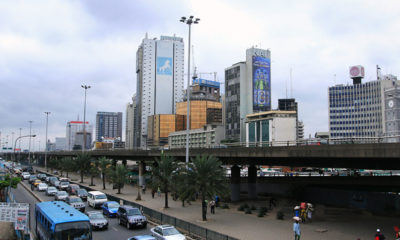- Nigeria’s Economy to Grow by 0.8% in 2017 -IMF
The International Monetary Fund on Tuesday predicted that Nigerian economy will grow at 0.8 percent in 2017 and 1.9 percent in 2018.
Nigeria, the largest economy in Africa contracted by 1.6 percent in 2016 due to global oil glut that eroded 70 percent of its foreign revenue.
However, the economy emerged from recession in the second quarter of 2017 after five consecutive quarters of contraction. This, IMF attributed to the resurgence in global oil prices and growing oil production but raised concerns about the weak banking system and policy implementation.
Economic growth in the Sub-Saharan Africa is expected to expand at 2.6 percent in 2017, up from 1.4 percent recorded in 2016. The region is projected to grow at 3.4 percent in 2018, mainly due to growing Nigeria’s oil and agricultural sectors.
The Fund, forecast weak economic growth of 0.7 percent for South Africa in 2017, saying growing political uncertainty in South Africa had plunged it business confidence despite healthy agricultural sector.
Ethiopia, one of the low-income nations is expected to grow at 8.5 percent in 2017 and 2018, while warning of food shortages and drought in South Sudan, Somalia and The Gambia.
Meanwhile, the Washington-based fund revised up global growth forecast from 3.5 percent predicted three months ago to 3.6 percent in 2017. The world economy is expected to grow at 3.7 percent rate in 2018.
Maurice Obstfeld, the IMF’s economic counsellor said; “These positive developments give good cause for greater confidence, but neither policymakers nor markets should be lulled into complacency.”
“A closer look suggests that the global recovery may not be sustainable. Not all countries are participating, inflation often remains below target, with weak wage growth, and the medium-term outlook still disappoints in many parts of the world,” Obstfeld said.
Accordingly, the IMF revised down U.K’s economic growth for 2017 by 0.3 percent to 1.7 percent, saying Brexit would weigh on the economic growth. Also, while the fund expects global economy to grow next year, the U.K. economy is projected to further slowdown to 1.5 percent in 2018.
“We forecast in the pre-referendum period, as did others, there would be long run negative effects on the British economy,” Obstfeld said. “I think we’re starting to see those.”
Canada is predicted to grow at 3 percent rate this year, the fastest among group seven nations. The U.S. 2.2 percent, Germany 2 percent, U.K. 1.7 percent, France 1.6 percent and Italy and Japan 1.5 percent each.

 Naira4 weeks ago
Naira4 weeks ago
 Naira4 weeks ago
Naira4 weeks ago


 Naira4 weeks ago
Naira4 weeks ago




 Naira3 weeks ago
Naira3 weeks ago
 Commodities4 weeks ago
Commodities4 weeks ago


 News4 weeks ago
News4 weeks ago


 Banking Sector4 weeks ago
Banking Sector4 weeks ago
 Travel4 weeks ago
Travel4 weeks ago






















